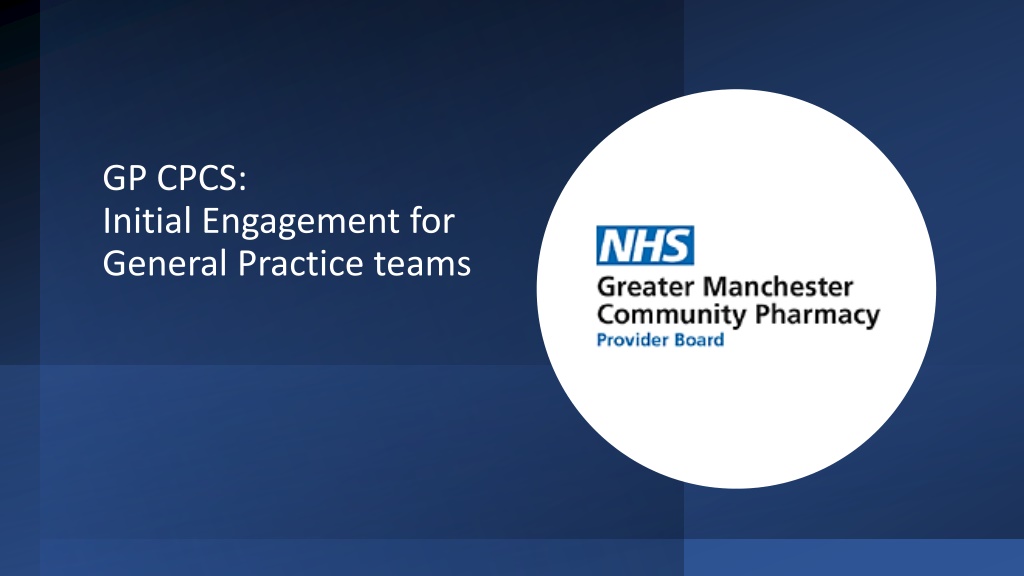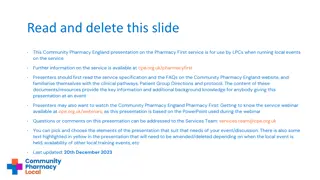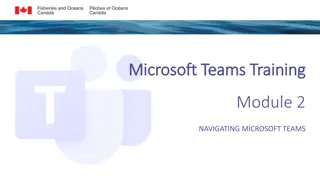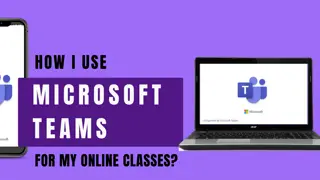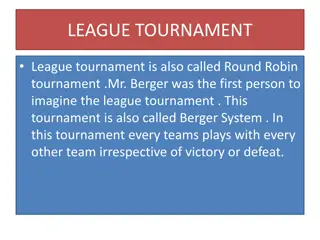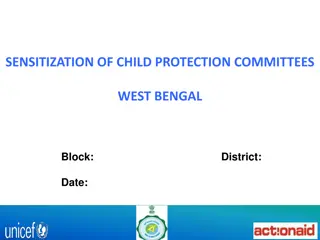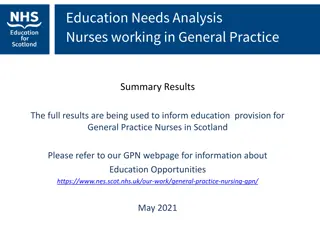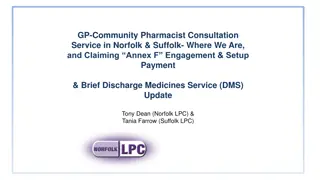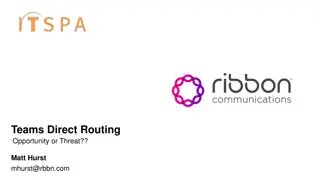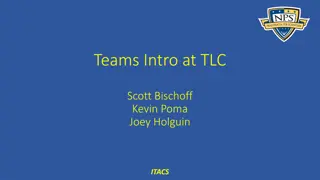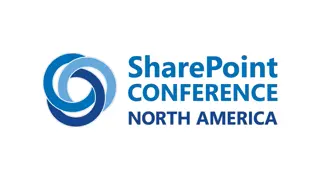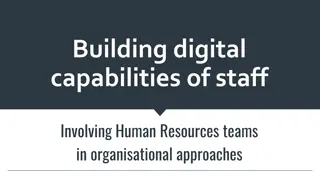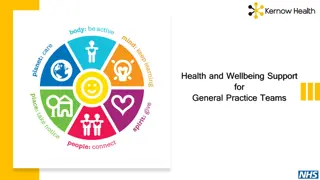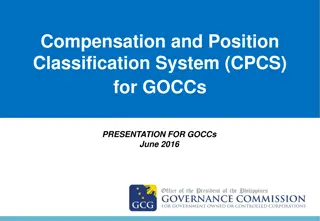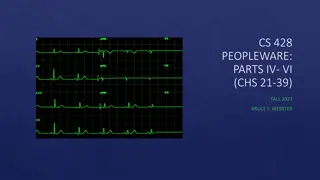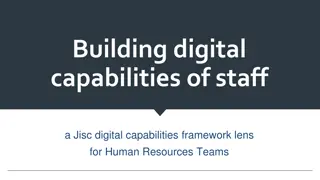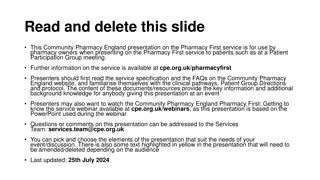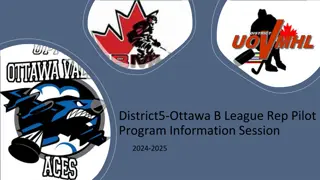GP.CPCS: Initial Engagement for General Practice Teams
The GP.CPCS (Community Pharmacist Consultation Service) allows general practices to refer patients with minor illnesses to community pharmacists for consultations. This service, launched in 2019, aims to increase capacity in general practice and improve access to primary care. Patients benefit from professional clinical services and re-education on choosing the right healthcare professionals, while general practices gain more appointment availability and strengthen relationships with primary care providers.
Download Presentation

Please find below an Image/Link to download the presentation.
The content on the website is provided AS IS for your information and personal use only. It may not be sold, licensed, or shared on other websites without obtaining consent from the author. Download presentation by click this link. If you encounter any issues during the download, it is possible that the publisher has removed the file from their server.
E N D
Presentation Transcript
GP CPCS: Initial Engagement for General Practice teams
Background The NHS CPCS (Community Pharmacist Consultation Service) is a nationally commissioned & funded service that was launched in community pharmacies across England in October 2019 Electronic referrals from NHS 111 were made to community pharmacies for patients with a minor illness or those needing an urgent supply of a medicine A pathway to expand this to general practice patients with a minor illness was piloted by NHSE&I in 2019-20 and the decision to expand the service to include referrals from general practice to community pharmacy was agreed from 1st November 2020 What is GP CPCS? What is GP CPCS? GP CPCS is a pathway that general practices use to refer patients with minor illness or low acuity conditions to a community pharmacist A patient referred electronically through GP CPCS will receive a consultation with a pharmacist (in the consultation room or remotely) where the pharmacist will clinically assess the patient, referring to SCR and NICE CKS as appropriate this is not a conversation over the counter (e.g., Minor Ailments Service) Only patients electronically referred from general practice or NHS 111 can be included in this service
Evidence & Impact GP CPCS: NHS 111 CPCS: GP referral pathway introduced following pilot success and evaluation NHS 111 CPCS: GP CPCS: 20 million potential savings if 6% appointments which could be safely referred to community pharmacy, were 332,000 patients referred in first 9 months of service from October 2019 10,500 patients referred per week in England 88% of patients referred had their concern resolved by the pharmacist
Benefits As general practices continue to deliver the COVID-19 vaccination programme, this greater use of pharmacists expertise can help ensure patients are provided with the right care by the right person at a time most convenient to them. This will increase capacity within general practice for the treatment of patients with higher acuity needs, both now and post pandemic This service aims to support the local NHS system and improve access to primary care through more effective use of existing resource, capacity, and expertise within the system Patients Accessible & professional clinical service from the pharmacist of their choice Re-educate patients to go to the most appropriate healthcare professional for their needs General Practice Create capacity more GP appointments available as those with minor illnesses/low acuity conditions have been referred to pharmacy Patients seen by the right healthcare professional at the right time Build on and enhance local relationships between primary care providers Allows community pharmacy to demonstrate its place within the NHS to manage patients with minor illnesses/low acuity conditions Build on and enhance local relationships between primary care providers Pharmacy NHS Cost-effective use of NHS resources to support patients with minor illnesses/low acuity conditions
1. Identifying a Referral: Receptionist or Care Navigator The process begins in the general practice and should be considered as part of the total triage process The patient contacts the general practice via telephone or online triage system Care navigator or receptionist assesses the patient s issue against a list of conditions which are suitable for referral under CPCS Please see Appendix B in the GP CPCS Toolkit for GP and PCN Teams for the full list of NHS CPCS symptom groups for determination by general practice.
2. Making a Referral: Receptionist or Care Navigator Patient Access Connect Template (EMIS) This is a tool integrated into EMIS-web which includes the condition list and some triage questions to help to identify appropriate referrals. The tool pre-populates with patient demographic information and sends it directly from the EMIS to the community pharmacy system (PharmOutcomes) via ITK link. [Please note patients are not required to sign up to the Patient Access app to utilise this referral mechanism.] Care navigator or receptionist makes an electronic referral community pharmacy patient s choice. to of the the The referral details are sent through to the pharmacy as an electronic message using the electronic tool. PharmRefer (non-EMIS) For non-EMIS practices, there is a web-based referral tool called PharmRefer, for which practices will have a login and which captures the same patient demographic information and sends it directly to the community pharmacy system (PharmOutcomes.) [There are currently no integrated tools on the market for non-EMIS practices.] Please see Appendix C in the GP CPCS Toolkit for GP and PCN Teams for further information. Funding for the IT referral mechanism has been sourced by GMHSCP. There is a helpful 4-minute video for general practice teams to see the EMIS tool in practice. Further information about PharmRefer can be found here.
3. Pharmacist Conducts the Consultation Pharmacy contacts the patient Consultation Outcome Pharmacist Remote or face to face Clinical assessment Presenting symptoms, relevant medical history & medication taken NICE CKS SCR Red flags Safety Netting advice Managed in the pharmacy or escalated If escalated, Pharmacist makes the call Consultation notes sent as pdf by NHS mail to the referring general practice Within 2-3 hours Consultation to be completed within 12 hours pending patient circumstances Patient should only contact the pharmacy themselves if they have not had contact within 3 hours
4. Consultation Outcomes Advice & urgent escalation to GP (pharmacist makes contact) Advice & urgent escalation to urgent care e.g. A&E or 999 Advice & non- urgent signposting to another service / GP Advice & referral into local MAS Advice & OTC sale Advice Only A minority of cases where a patient is urgently escalated to A&E To another hcp e.g. optometrist Or to the GP for a routine appt. e.g. dermatitis / eczema which was previously treated with OTC steroid cream but is no longer effective Patient Reassurance. May also include provision of written information, or recommendation to use products the patient has at home Where the pharmacist considers the patient should be seen by their GP the same day Pharmacist will contact the practice themselves Patient is encouraged to purchase a medicine OTC. Pilot feedback shows this was not a barrier for patients even in deprived areas Where the MAS is commissioned and where the presenting symptoms and patient are included in the service eligibility criteria
GP CPCS vs. Minor Ailments Service (MAS) GP CPCS MAS If the reception staff are : not confident in the patient's self-diagnosis OR feel that the patient would benefit from a clinical consultation with the pharmacist OR feel that a red flag discussion and a review of patient's medicines and relevant medical history is appropriate If the reception staff are: confident in patient's self-diagnosis AND do not feel there is need for a clinical consultation with the pharmacist to exclude red flags e.g. sepsis then they can continue to signpost and NOT use GP CPCS to make a referral. then they should refer under GP CPCS. Key points: An electronic referral ensures that the patient is assessed by the pharmacist and that the pharmacy will get paid for the consultation Key points: MAS patient assessment is carried out by any member of the healthcare team under the supervision of a responsible pharmacist Patients referred via GP CPCS will receive a personal consultation with the pharmacist either remotely or in person Only patients who fit the eligibility criteria for the MAS then they can be treated under the MAS and receive a medicine supply free of charge Consultation outcomes and any product supplied will be sent back to practice Details of the interaction will not be shared with the GP If patient requires a referral back to the practice this will be formally handled by the pharmacist ensuring that risk is managed across primary care Contact has been made with all pharmacies in Greater Manchester in preparation for GP CPCS deployment and conversations around Minor Ailment Scheme have been had where appropriate.
GM Deployment Overview GovernanceGMHSCP Head of Primary Procurement managed by GMSS ScopingAll GM general practices in 2021 regarding IIF incentives for general practice PlanningDeployment blueprint & plan Monthly stakeholder reports shared inc. KPIs & activity data EngagementGM system: DMOG, Primary referencing WPAF & IIF deployment reviewed & streamlined to inc. increased activity from Jan 2022 Care is SRO for programme scope prepared to provide standard process & activity tracking Care Board, Community Pharmacy provider Board, GP Provider Board, PCN Clinical directors, community pharmacies, CCGs, Practice- based pharmacists & Practice managers PID completed Initial targets of 50% deployment by March 2022 revised following announcements in October First practices live May 2021 Working group set up to inc. LPCs, GMHSCP & GP reps 101 practices live as of end November 2021 Funding for IT referral mechanism by GM agreed for 21/22 and 22/23 by Primary Care Digital Board GMHSCP comms sent out late November 2021 GM-specific processes & escalations agreed Reporting to GM system is being reviewed in November 2021 Virtual Outcomes training secured for general practice & community pharmacy
Next Steps Book all appropriate reception / admin / care navigator staff onto a training session See link shared separately Training Your GP CPCS WG lead will allocate a go live date once training has been booked Date will be confirmed to you by email Date GP staff attend training session GP CPCS working group contact all pharmacies who dispense majority of prescriptions from your practice to confirm go live date & share supporting information inc. contact info for non-urgent and urgent escalations Prep for go live Practice team start to make referrals Target referrals are 0.65 referrals per week per 1000 patient list size Your GP CPCS lead is available should you require any information or support* Go Live * For any issues which require formal escalation, please see GP FAQs for process
It is vital that practices attend a GP CPCS training session and does not commence making referrals until the go live date confirmed by the GP CPCS working group lead. If a practice starts to make referrals without completing these vital steps, there is as risk that: Practice staff will not receive training and so may make inappropriate referrals, leading to a higher rate of escalations and a negative patient experience Referrals sent via NHSmail are not visible to the commissioner they can only be seen when the pharmacy completes the consultation in PharmOutcomes, meaning no audit trail of missed or dropped referrals Escalation information has not been collated from the practices & shared with pharmacies GM processes will not be followed as pharmacies will not have the escalation information we are collating as part of deployment Pharmacies are not informed of a practice going live they may miss referrals leading to a negative patient experience and potential damage to relationships To confirm To confirm
Resources GP CPCS Tools Link NHS CPCS Toolkit for GP and PCN teams Report template - NHSI website (england.nhs.uk) NHS GP Briefing Note https://www.england.nhs.uk/primary-care/pharmacy/community-pharmacist-consultation- service/referring-minor-illness-patients-to-a-community-pharmacist/ Advanced Service Specification NHS CPCS https://www.england.nhs.uk/wp-content/uploads/2019/10/CPCS-Advanced-Service-Specification.pdf Patient Access Patient Signposting Video https://www.youtube.com/watch?v=pyQUfUR2lz0 PharmRefer Video https://media.pharmoutcomes.org/video.php?name=PharmRefer-2021_Update NHSBSA GP CPCS Page General Practice Community Pharmacist Consultation Service (GP CPCS) | NHSBSA PSNC GP CPCS Page including GP CPCS Animation CPCS GP referral pathway : PSNC Main site GP CPCS Pilot - Bristol, North Somerset and South Gloucestershire pilot NHS England GP Referral to NHS Community Pharmacist Consultation Service Bristol, North Somerset and South Gloucestershire pilot Frequently Asked Questions (FAQ s) Frequently Asked Questions (primarily for general practice teams)
